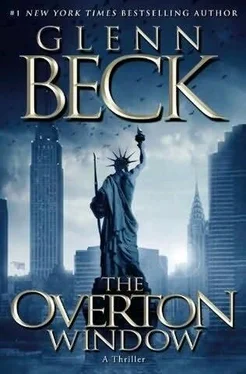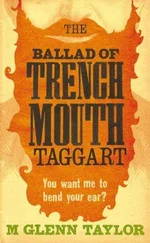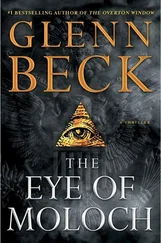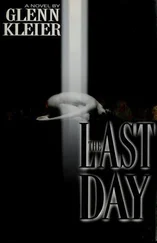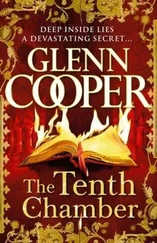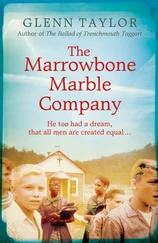“I’m so glad you understand that.”
“I do. Things are bad, and they’re going to get a lot worse before this crash is over, but all this“-he gestured around at the bar full of people-“what do you all think you’re accomplishing here?”
“We’re getting together and taking a stand.”
“Taking a stand? Against what? Against the way things have always been? Because that’s not going to change.”
Molly shifted in her seat to square off with him, then looked into his eyes. “Why did you really come here tonight?”
He sighed, and sat back. “I guess I just wanted to get to know you.”
“Well,” she said. “This pointless meeting, that deluded woman onstage, and all these other misguided people? That’s me. Now you know me.”
With that she gathered her things and left him sitting there alone with his beer.
Noah had lost count of the refills after his first pint, but by then he was averaging around thirty-two ounces of suds per special guest speaker. He’d briefly considered playing a drinking game with himself, wherein he would pound one back each time he heard one of the dirty words progressive, socialist, or globalism, but by those rules he’d have drunk himself under the table within a few minutes. Their spiels were all different but the highlights were mostly the same, with only minor deviations in two areas: where to place the blame for their country’s troubles, and what to do about it.
He was still in his lonely seat by the stage. After he’d struck out with Molly there was no real reason to hang around but he felt too beat to get up and leave. Besides, the angry beer buzz he was stoking seemed like the best medicine for putting this malignant night into remission.
The nearby crowd parted at the end of another onstage musical interlude. He’d been hoping to see the waitress bringing him another tall one, but instead it was a familiar, enormous bearded man who walked up to the table.
Hollis-no last name had been offered for him-gently touched the barstool across from Noah with a finger. The expression on the part of his face not covered with bristly hair asked politely if that seat was taken.
“Please,” Noah said, “be my guest.” The barstool looked like doll-house furniture next to this soft-spoken behemoth, but somehow it held up as he sat down. “Though I’ll tell you the truth, when you’ve got your choice of a few hundred people here who I guarantee are better company than me, I wonder why you’d decide to sit here.”
The waitress came and put a beer down for Noah and a bottle of Coca-Cola for his new tablemate. Hollis waited until she was gone to answer.
“I don’t know,” he said. “You looked kinda sad, I guess.”
As if to drip gasoline on Noah’s already smoldering mood, tonight’s headliner, the illustrious Danny Bailey, now took to the stage in a swell of heavy-metal music and an ovation that rattled every shelf of glassware behind the bar.
“Hello, New York!” Bailey shouted, like an aging rock star kicking off his annual farewell tour. He held out the microphone to pump up the roar of the answering crowd and made no move to settle them down. On the contrary, the clamor continued until he produced a piece of paper and took back the mike almost a full deafening minute later.
“Thank you, really. I could listen to that all night long. Let me see if this is my crowd, though. How can we tell if a politician is lying?” He turned the mike briefly to the crowd again for their answer.
“Their lips are moving!” the people shouted.
“That’s right,” Bailey said. “And watch what they name things, especially those bills they’re all voting on without even reading them. If they call something the Patriot Act, you can bet it won’t be long before they’re using it to hunt down us patriots. If it’s called Net Neutrality, it’s going to be used to neutralize their enemies. If it’s called the Fairness Doctrine, it’s meant to un fairly put free speech under government control and create a chilling effect on your First Amendment rights. Immigration reform, health-care reform-do me a favor, when you hear them say the word ‘reform,’ I want you to hear the word ’transform! And the next question you’ve got to ask is, What are they trying to transform us into? A better, stronger, freer country? Or a place filled with more and more people who are easier to control, easier to exploit, easier to keep under their thumb?”
This drew a loud and positive reaction from the crowd, which continued until Bailey produced a piece of paper and made a motion to quiet them down.
“Hey, is anybody out there looking for a job? Unemployment just shot up past twenty percent, real unemployment that is, not the bogus numbers we get spoon-fed on the nightly news. And that’s nothing; it’s almost forty percent if you’re a young black man in this free country of ours. Since I thought maybe some of you might be looking for a new career, I brought this job opportunity for you.”
He held the printout in his hands at an angle so he could read from it under the lights. “I found this last week on a government website. It’s a really good job for what they call an Internment and Resettlement Specialist.”
The crowd’s reaction was immediate, loud, and angry.
“Now, calm down, give it a chance. Of all the world’s prisoners, we’ve got twenty-five percent of them right here in this country. And hell, the U.S. has only five percent of the planet’s population, so there must be a disproportionate number of undesirables in America, don’t you think?”
A man just outside the circle of the spotlight handed up a stack of stapled papers.
“Oh, wait,” Bailey continued, hamming up an incredulous reaction to the new document on top. “What’s this? I don’t believe we’re supposed to see this. This is Army Regulation 210-35, dated almost five years ago. And will you look at that? The title is ‘Civilian Inmate Labor Program.’ Maybe this is what they need all those new internment and resettlement specialists for.”
Another burst of outrage from the crowd.
“Now hold your horses. These are dangerous criminals. After all, somebody’s got to keep them in line, right? Why not put ‘em in a military work camp, where we can get some free labor out of them? As long as we’re not the criminals we’ve got nothing to worry about.”
He flipped to another one of the documents in his hands. “But what do we have here? A memo from 1970, written by a man who later became the director of FEMA, advocating the rounding-up and internment of twenty-one million quote-American Negroes-unquote, in the event of civil disorder. Now, I left my exact figures at home, but I believe at that time twenty-one million would have been roughly all of the black people in America.
“And here”-he squinted as he read briefly from the document on top of his stack-“United States Air Force Civil Disturbance Plan 55-2 will authorize and direct the secretary of defense to use the U.S. armed forces to restore law and order in the event of a crisis. Under this umbrella plan they ran an exercise in 1984-so you see they do have a sense of humor-and that exercise was called Rex-84. The purpose was to see how efficiently they could pick up and corral all those disobedient Americans on their lists.”
Bailey held up document after document as he continued. “What lists, you ask? All kinds of them. The FBI’s ADEX list from the late 1960s-ADEX, that stands for Agitator Index-it was full of dangerous intellectuals, union organizers, and people who spoke out against the Vietnam War. Now there’s almost a million and a half people on the DHS Terrorist Watch List, and it’s growing by twenty thousand names every month.
Читать дальше
